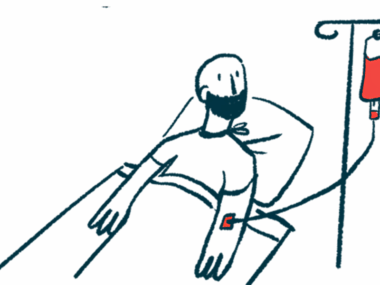Vyvgart now approved in Canada for adults with AChR-related gMG
Argenx therapy found to ease gMG symptoms in ADAPT Phase 3 trial
Written by |

Health Canada has approved Vyvgart (efgartigimod alfa-fcab) to treat adults with generalized myasthenia gravis (gMG) who are positive for antibodies targeting the acetylcholine receptor (AChR), the most common target of MG-causing antibodies.
The approval is based on positive data from the Phase 3 ADAPT clinical trial (NCT03669588), which showed that Argenx’s Vyvgart — given as an add-on therapy — was more effective at easing gMG symptoms than a placebo.
“Today is an important day for us as we deliver on our commitment to the gMG community to make Vyvgart available to patients in Canada,” John Haslam, general manager at Argenx Canada, said in a company press release.
“For the first time, people living with gMG in Canada will have a treatment option that is targeted to the biology of their disease, which is both well-tolerated and effective in managing symptoms,” Haslam added.
The approval follows similar decisions in the U.S. and the European Union, as well as in China, Israel, Japan, and the U.K. In all these regions, now including Canada, Vyvgart is the first and only neonatal Fc receptor blocker authorized for sale.
Approval of intravenous Vyvgart welcomed by MG community in Canada
In MG, the immune system produces self-reactive antibodies that mistakenly attack proteins involved in the communication between nerve and muscle cells, leading to symptoms like muscle weakness.
Administered intravenously, or directly into the bloodstream, Vyvgart is a human antibody fragment designed to bind to and block the activity of the neonatal Fc receptor, a protein that helps stabilize and prevent the destruction of antibodies.
Given its mechanism of action, the therapy is expected to reduce the levels of MG-causing self-reactive antibodies, and ultimately ease disease symptoms.
“The gMG community in Canada has long awaited new effective treatment advancements for this rare condition,” said Stacey Lintern, CEO at Muscular Dystrophy Canada, a patient advocacy group that provides support and resources to individuals with neuromuscular disorders and funds research.
“Today’s announcement brings new hope for people with gMG, and we look forward to seeing the important impact of this additional treatment option,” Lintern added.
“We are very excited by the authorization of Vyvgart for sale in Canada, bringing a safe and effective treatment option to patients and clinicians that targets the underlying driver of gMG by reducing [self-reactive antibodies].
Conducted in North America, Europe, and Japan, the ADAPT trial tested Vyvgart against a placebo, in addition to the participants’ current treatment. It involved 167 adults with gMG, including 129 with anti-AChR antibodies.
The initial treatment cycle consisted of four weeks of a single weekly intravenous or into-the-vein infusion. An additional variable number of treatment cycles was given considering the patients’ clinical response, for about six months.
The trial met its primary goal and key secondary goals. Significantly more AChR-positive patients given Vyvgart than a placebo showed clinically meaningful symptom reductions after one treatment cycle, as assessed by scores on the Myasthenia Gravis Activities of Daily Living (67.7% vs. 29.7%) and the Quantitative MG (63.1% vs. 14.1%) measures.
The therapy also was found to be safe and well-tolerated. The most commonly reported adverse events, which occurred at a higher frequency than in the placebo group, were headache (29% vs. 28% with a placebo), upper respiratory tract infection (11% vs. 5%), and urinary tract infection (10% vs. 5%).
Most patients who completed the ADAPT trial entered an open-label extension study, called ADAPT+ (NCT03770403), in which all received the treatment for up to three years. At a mean follow-up of two years, Vyvgart was found to continue to reduce disease symptoms and to show a favorable, consistent safety profile.
Additional analyses from data spanning both trials showed that Vyvgart was effective independently of disease duration, treatment history, or the presence of anti-AChR antibodies.
“We are very excited by the authorization of Vyvgart for sale in Canada, bringing a safe and effective treatment option to patients and clinicians that targets the underlying driver of gMG by reducing [self-reactive antibodies],” said Vera Bril, MD, a professor of medicine (neurology) and the director of the neuromuscular section, division of neurology, at the University of Toronto.
Meanwhile, a new subcutaneous or under-the-skin formulation of Vyvgart, called Vyvgart Hytrulo, has been approved in the U.S. for the same indication. Vyvgart Hytrulo also is under regulatory review in the European Union and in Japan.



Leave a comment
Fill in the required fields to post. Your email address will not be published.